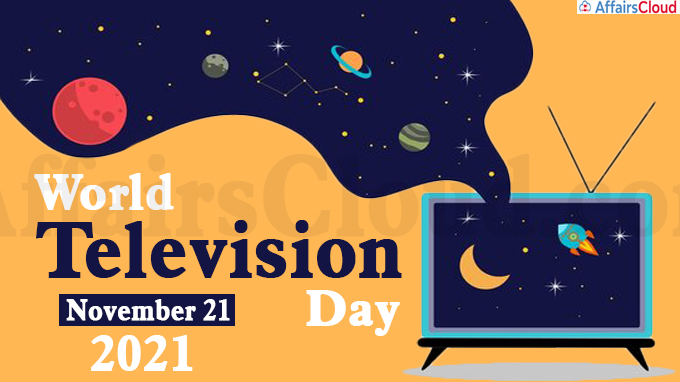
United Nations(UN)’s World Television Day is annually observed across the world on November 21st to recognise the impact of television on decision making by highlighting the attention on conflicts, threats to peace and security and its role in enhancing the focus on major issues like economic and social issues.
- Television, which represents a symbol for communication and globalization in the contemporary world, is the leading largest source of video consumption.
Background:
i.The United Nations General Assembly(UNGA) adopted the resolution A/RES/51/205 on 17 December 1996 and proclaimed the 21st November of every year as World Television Day.
ii.The first World Television Day was observed on 21st November 1997.
Why November 21?
The World Television Day on 21st November commemorates the date on which the UN held the first World Television Forum on 21st and 22nd November 1996.
History of Television(TV):
i.John Logie Baird, a Scottish inventor, electrical engineer, and innovator, invented the first mechanical television, which could transmit pictures of objects in motion in 1924.
- He also demonstrated the world earliest transmission of colour television in July 1928.
ii.Philo Taylor Farnsworth, an American inventor, developed the first all-electronic television system.
- He made his first successful electronic television transmission in 1927.
- He had earned more than 300 patents for electronic and mechanical devices.
TV in India:
i.Around 2 decades after the British Broadcasting Corporation (BBC) began the first television service of the world in 1936, television was introduced in India on 15th September 1959 in Delhi, with the assistance of the United Nations Educational, Scientific and Cultural Organisation (UNESCO).
ii.In 1959, television broadcasting was under All India Radio (AIR), and later the television service was separated from the AIR as Doordarshan on 1 April 1976.




